Turkey: Affordable Cost Of Living And Property Investments Across A Mediterranean Hot Spot
Turkey offers a wide array of choice and bundles of potential for anybody willing to do a little homework and leg work.
The country is immense, but, thankfully, you can focus your interest on four regions in particular: the Aegean coast, the Mediterranean coast, Istanbul, and Cappadocia.
For instance, Turkey stretches from the turquoise and azure waters of the Aegean and Mediterranean seas—where you’ll find most expats—across towering pine-covered mountains, on to the rolling plains that mark the beginning of the great Eurasian Steppe, then on over lush green mountains to the Black Sea coast, legendary home of the Amazons.
Along thousands of miles of coastline, you can find sleek resorts and modern medical facilities, just yards from the monumental remains of ancient Greece and Rome. It’s a country where the modern and the traditional are juxtaposed, at once familiar and excitingly different—and very affordable.
With its young population, Turkey is a country of the future.
The economy is growing and diversified between Europe and Asia. And it’s easier than it’s ever been for foreigners to invest here now, especially in real estate.
Though not the capital, Istanbul is the country’s beating heart. Istanbul offers the best of any European city—from lattes to the latest Hollywood releases (in English)—but with a superior nightlife.
Plus, you really can watch the world go by beneath a skyline of minarets and modern office blocks as ships from all over the globe trundle up and down the Bosphorus, the narrow straits that divide Europe from Asia.
Cost Of Living In Turkey
Real Estate In Turkey
Some years ago, there was no property market in Turkey for foreign buyers.
Foreign ownership restricted, but the process of purchasing property as a foreigner was complicated. However, all that changed with Turkish reforms designed to ease entry into the EU.
Now your purchase of property in this country as a foreigner can be completed in a matter of two weeks or less, rather than the months it took in the past.
Property values along this country’s Mediterranean coast saw steady appreciation in the years leading up to 2008, when they, like property values in many markets worldwide, were shaken, though not as dramatically as elsewhere.
Prices recovered within a year and a half and have since been slowly rising again. Despite this recent appreciation, Turkish coastal real estate remains a regional bargain and is expected to continue to appreciate in value for at least the next several years.
The real estate market in Turkey wasn’t hit as hard as others around the world in 2008 and 2009.
Values in some districts of Istanbul dropped by maybe 25% at the height of the downturn (about the same as in Panama)… but in just a year-and-a-half prices had recovered.
That rate of appreciation (10% to 15% per year on average) continued in 2014 and is expected to carry on indefinitely.
Despite these impressive rates of appreciation, Istanbul real estate remains a bargain compared with other global-standard cities
In 2012, Turkey ended the reciprocity condition for land sales, opening up the door to international investment. The result of that was an almost overnight increase in property sales.
Recently, accountancy firm Ernst & Young ranked Turkey the second-most attractive market for investors in its 2013 European Real Estate Trend Indicator report and Price Waterhouse Coopers ranked Istanbul number one for development prospects in its 2013 Emerging Trends in Real Estate Europe report.
Property in Turkey—even in the most desirable Mediterranean resorts—remains affordable. It’s priced well below the cost of comparable buys in more established retirement destinations along the Mediterranean. Property prices in Turkey can be less than half the cost of similar beachfront properties in Spain, even in the most popular coastal spots.
Note that some restrictions remain in place on foreign ownership of property in certain areas. Foreigners can own land in Turkey only if Turks are allowed to own land in the foreigner’s country.
Foreigners are limited to owning 30 hectares of land (larger tracts require special permission).
As a foreign national, you can’t own more than 30,000 square yards of land without the approval of the Turkish Council of Ministers.
Restrictions are also placed on foreign land ownership in low population areas (fewer than 2,000 inhabitants).
Property Investment In Turkey
Turkey is having a record-breaking year for property sales, up 107% compared to May of 2020 thanks, in large part, to foreign buyers.
Foreign investment has increased in part due to Turkey’s successful CIP, but this accounts for only 20% of overall sales.
Also, Turkey is an attractive destination for lifestyle and investment opportunities.
Half of this year’s property sales took place in the country’s most vibrant and historical city, Istanbul.
Istanbul was the world’s ninth most visited city in the world in 2018. That was behind brand-name cities like Paris, London, New York, and Tokyo… but ahead of other major cities, including Berlin, Barcelona, Rome, and Los Angeles.
In addition to tourism growth, Istanbul and Turkey in general are enjoying strong economic growth as the population increases and the middle class expands.
Turkish buyers are re-entering the market due to reduced interest rates. Both tourism rentals and student rentals are appealing rental investment options.
One of the biggest selling points for an investment in Istanbul is the low cost of entry. A rental unit in this market is within most any investor’s budget.
Infrastructure
Turkey’s infrastructure is impressive for what is still an emerging market, but will face challenges accommodating their exploding population in coming years. Still, though, Turkey’s infrastructure holds up against EU-member nations.
Turkey’s air infrastructure is well-developed throughout the country, with over 100 airports (about 20 of them are international). Istanbul’s three major airports receive most of the country’s air traffic.
The Istanbul International Airport is a rather new structure in Turkey. Officialy inaugurated in 2018, it is located n the Çatalca- Göktürk-Arnavutköy area, on the European side of the city, 40 kilometers from Taksim and 52 kilometers from Kadıköy.
By modern standards it is a major transportation hub, connecting Europe, Asia, and Africa.
Previously, all passenger flights arrived to the Ataturk Airport but moved to the new airport.
Turkey also has highly developed coastal and maritime infrastructure with 70% of its borders being coastline. The country’s economy depends heavily on merchant marine and fishing fleets from its various surrounding seas. Communications infrastructure is excellent, as is the national road system.
The national rail system is the least developed aspect of the country. While there is quite a bit of track laid throughout the country, only about one-fifth of it is electrified.
All the rails are state owned and operated. This makes improvement or expansion difficult; politicians aren’t interested in revamping the railroads.
Trains have been all but abandoned as modes of transportation in Turkey.
Istanbul is the largest city in Turkey, is the economic, cultural, and historical hub of the nation, and houses more than 14.4 million people.
Not surprisingly, much of the modern infrastructural innovation and improvement has been based in Istanbul, which now offers residents a metro, a tram, buses, ferries, taxis (both land and water), excellent roads and supporting traffic control infrastructure.
While interior regions of the country may not boast such outstanding infrastructure, major cities and coastal areas are well-serviced.
Health Care In Turkey
In the last decade private health care options have increased significantly all over the country. While options in the past were poor and limited to public health care, reforms over the last few years have improved the system, though it still doesn’t quite meet EU-member country standards.
Istanbul, Ankara, and other major cities offer the best health care facilities in the country.
In short, rural areas health care facilities may be well below your accepted standard or not exist at all.
Visa And Residency Information
U.S. citizens must obtain a tourist visa to enter Turkey for a maximum of 90 days (multiple entry). After the 90-day period has lapsed, you will be required to buy a new visa or obtain permanent or long-term residency permit.
It used to be difficult for a foreigner to establish full-time residency in Turkey, but it was made much easier in 2014. Now it’s even possible to obtain residency through the purchase of real estate.
Still, Turkey may be best enjoyed as a part-time retirement option. If you live here more than six months of the year, you become liable to the Turkish authorities for tax on your worldwide income.
Residency in Turkey can lead to a second passport and dual citizenship in this country, but there are several requirements, including “adequate command” of the Turkish language.
Click here for currency conversion at today’s exchange rate.
Climate In Turkey
Most of Turkey has a Mediterranean climate and enjoys four seasons that can be more and less harsh depending on the region. Areas of Turkey nearer to the Black Sea experience the cooler Oceanic climate.
Areas of Turkey near the Sea of Marmara (this area includes Istanbul) have a transitional climate that straddles both Mediterranean and Oceanic climates. Here, the seasons can be harsher than on the Mediterranean.
The Turkish coast that borders the Mediterrean Sea enjoys a mild climate—hot, dry summers and cool, wet winters. It rarely snows in these areas. However, the coast that borders the Black Sea experiences harsher seasonal changes and receives more precipitation (and more frequently) than the rest of the country.
And the areas bordering the Sea of Marmara (like Istanbul) can experience the best and the worst of their neighboring climates. It usually snows in winter in these areas, as well as in mountainous regions, but not heavily.
The interior of the country experiences the harshest climates and seasons, as most of the interior is isolated from climate influence due to mountain ranges.
Most of the interior has a Continental climate. The central Anatolian plateau, for example, suffers from severe climate changes from season to season, with temperatures reaching -40°F at their lowest and 90°F at their highest.
The temperature in Istanbul (and the western regions of Turkey) typically ranges between 35°F and 85°F throughout the year.
Average annual humidity is around 80%. Istanbul receives less than 25 inches of rain per year.
As in any country, weather depends on your region, but generally Turkey enjoys a warm, mild climate, with a noticeable temperature fluctuation from season to season.
Turkish Winter: December to February
Turkish Summer: May to September






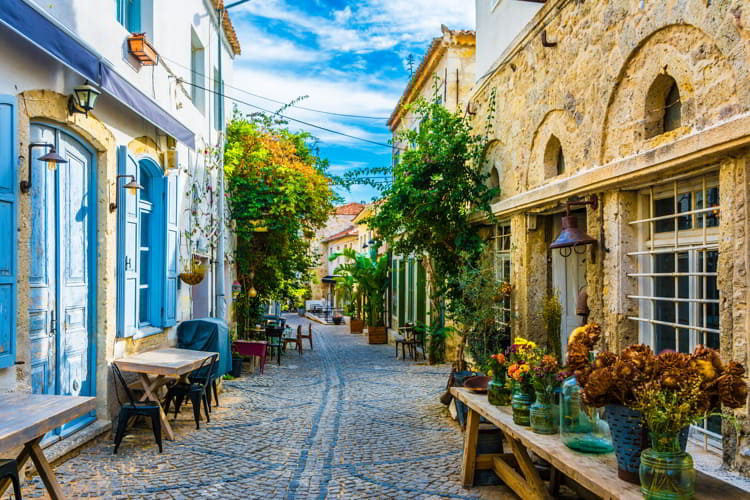





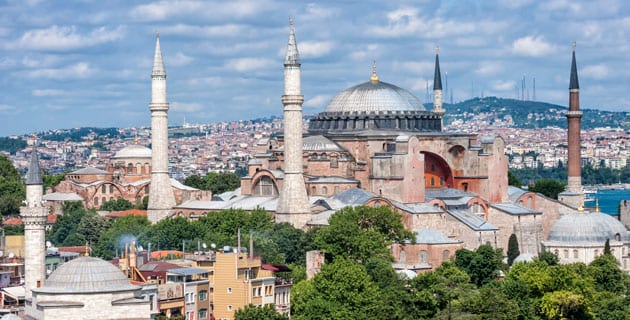
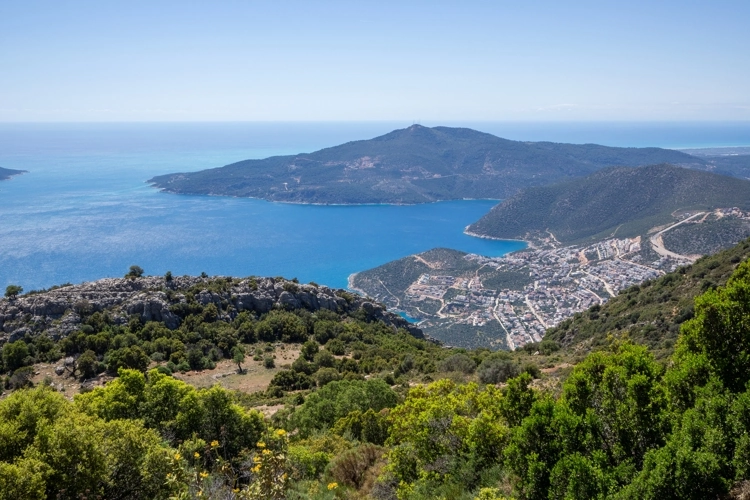 . '
. '
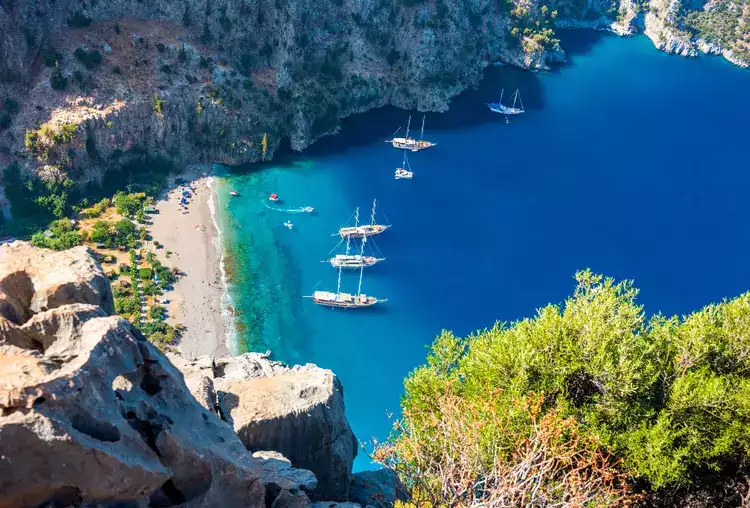 . '
. '
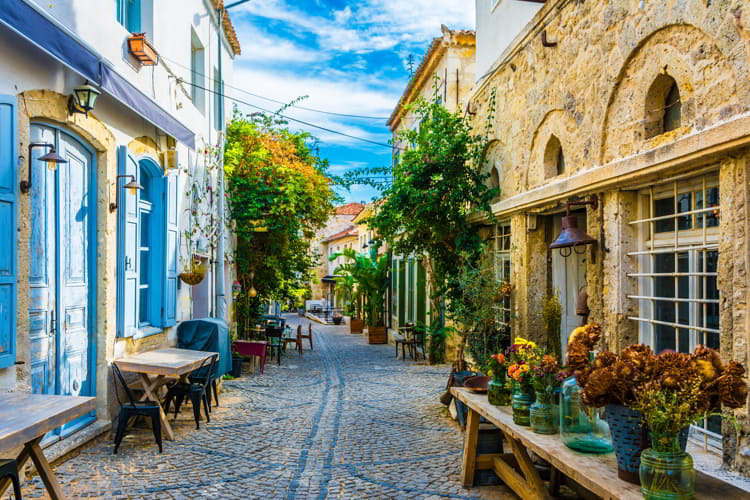 . '
. '






